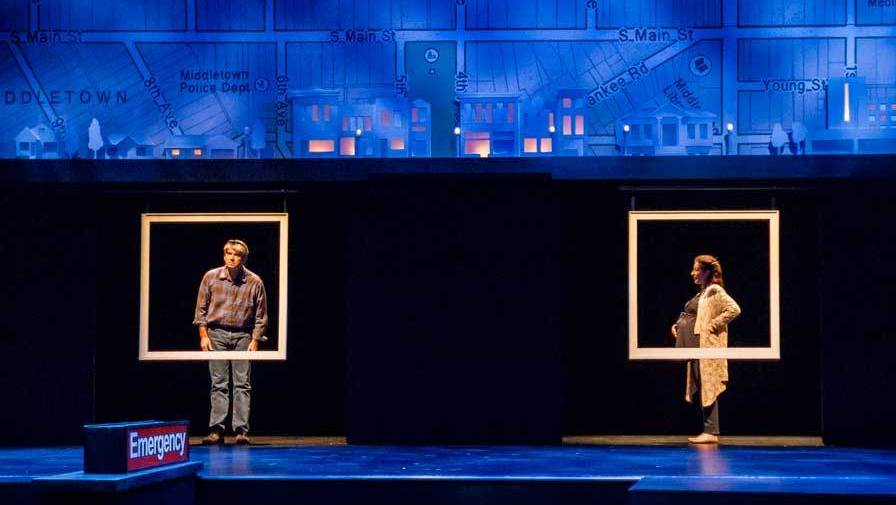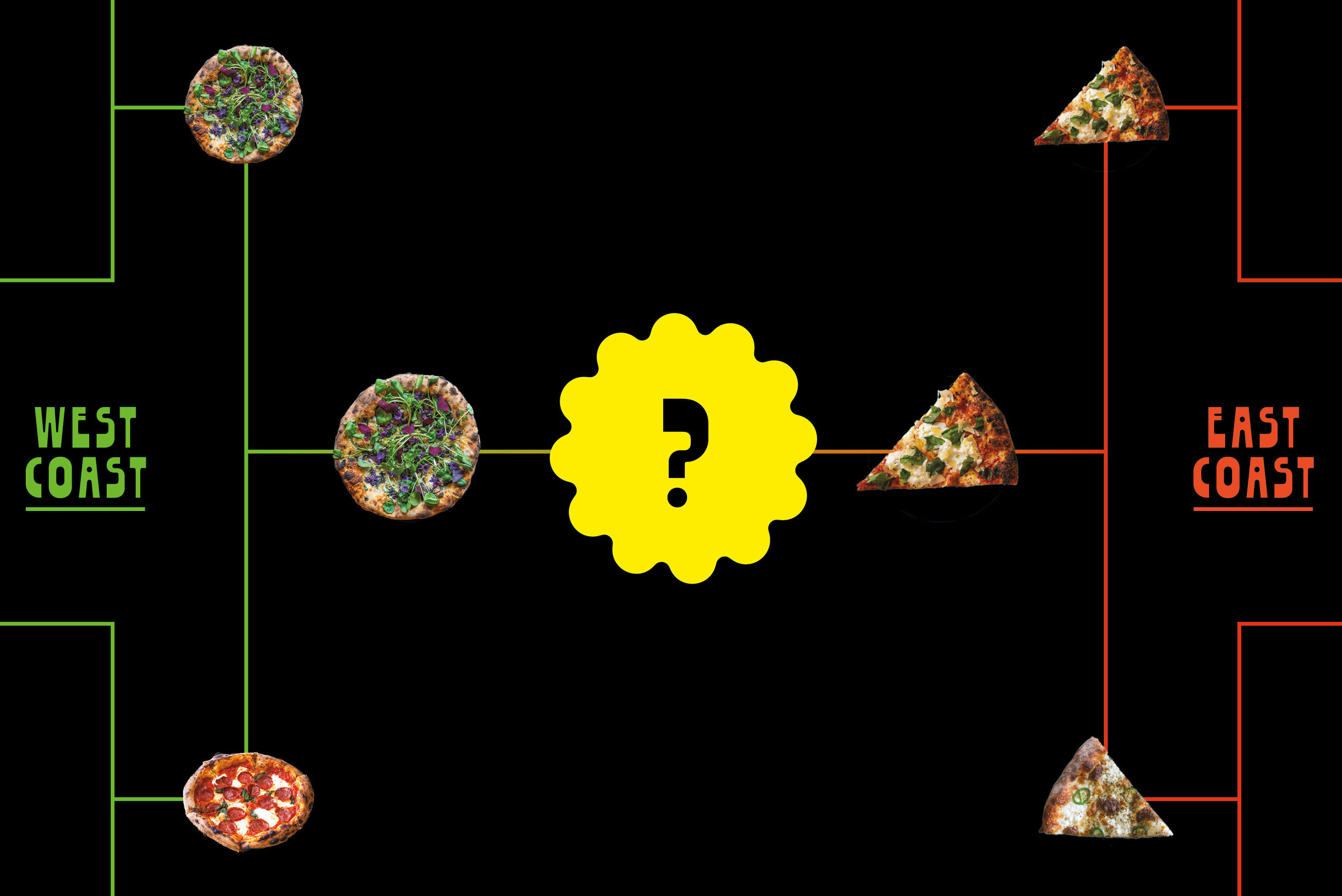Third Rail Rep’s ‘Middletown’: Tackling the Big Questions

Michael O’Connell and Maureen Porter
Image: Owen Carey
Unless you’re a psychologist, or perhaps a sophomore philosophy major, you probably won’t come across anyone as likely as the residents of Middletown to launch into unsolicited ramblings about whatever existential void is confronting them at the moment. The uncertainness of life, the inevitability of death, and our place in a seemingly cold and impersonal universe—these are the constant and unprovoked topics of conversation between townspeople in Will Eno’s fictional American hamlet.
It’s your taste for that sort of thing that will likely determine how much you enjoy Eno’s dark comedy Middletown, which Third Rail brings to the Winningstad Theatre for its Portland debut (although the play was a hit at PCS’s JAW playwriting festival in 2009). “Unsolicited” is the key word here, because with plot and character development this thin, there’s not much context to ground the impressive lyrical gifts with which Eno eagerly tackles the “big stuff.” The playwright also displays a natural feel for humor in the midst of all his heady themes, augmented by assured performances and direction from the Third Rail cast and creative team.
There’s an argument to be made that the play’s apparent distaste for small talk is admirable, but ultimately Middletown is a production for the sort of people who try to strike up meaningful conversations with strangers on the bus—or, perhaps, for those who would, but lack the courage to do so.
Middle Town
Third Rail Rep
Winningstad Theatre
Thru Oct 19Middletown follows a few citizens of its eponymous locale: principally an expecting mother who recently moved to town (Maureen Porter) and a lonely handyman with whom she strikes up a friendship (Michael O’Connell), but also a cop, a librarian, the town drunk, and various other community members. Eno crosses the paths of these people with a series of events that only barely coalesces into a plot, a decision that leaves the play feeling disjointed and unfulfilling. I’m no classical tragedian, and I’m not arguing that a traditional plot is essential to successful theater; inevitably, though, organizing the action in this way makes it very hard for the many “woah” moments not to feel somewhat forced.
Of course, Eno doesn’t shy away from the awkwardness and natural comedy that his characters’ existentially fixated conversations is bound to produce. The dialogue is often punctuated by misunderstandings and long silences, played for humor to great effect by a talented cast. Diane Kondrat and Ben Newman are particularly funny as the librarian and drunk, respectively, and a scene between the two in the play’s second act offers a truly touching moment. And Director Marcella Crowson keeps the script humming along when it could easily appear much more disorganized, particularly during a few absurdly meta moments that border on self-parody (which, in retrospect, might have been their only real purpose).
Eno has admitted thinking of his play as something of a spiritual successor to Thornton Wilder’s Our Town, a lineage mostly apparent in the town relationships and Middletown’s lack of compunction towards breaking the fourth wall in order to comment on the action at hand. It’s a tactic that can be used to great effect—and it is at times—yet no one would claim it’s as bold as it was in 1938.
To be frank, the overwhelming impression left by Middletown is that of a play that thinks it’s more boundary pushing than it actually is. If bumper sticker philosophy lines like “we’re born with questions and the world is the answer” are appealing to you, you’re in luck. The rest of us can focus on Eno’s dexterous language and his sense for a punch line—not to mention Third Rail’s excellent set design and able production—and be entertained enough. But it’s hard to shake the sense that, for all of Middletown’s ambitious thematic material and theatrical tricks, the play remains bizarrely unrealized.




